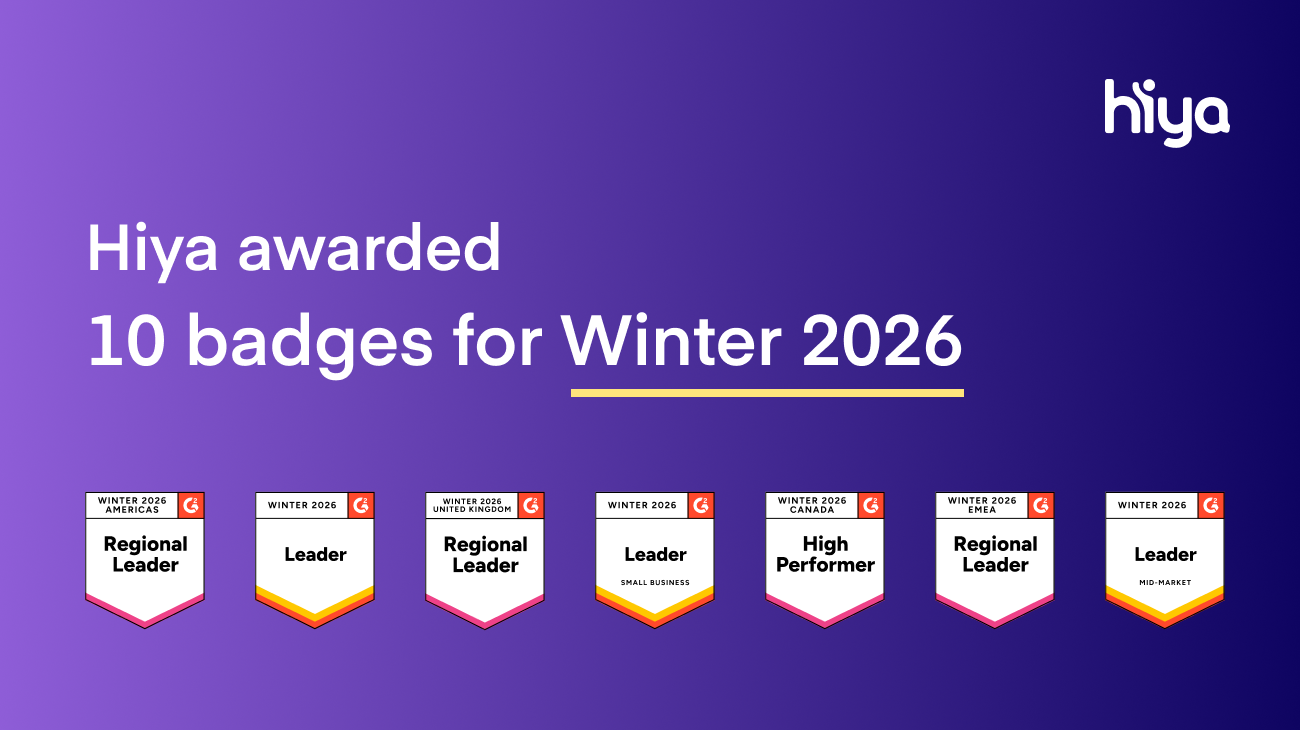
If you're an enterprise that makes a lot of calls, you might have been perplexed and frustrated about why some of your calls are heading straight to voicemail or going unanswered altogether. The answer could lie in your call reputation.
Your call reputation is heavily influenced by end-user reports and blocks - all of which may lead to a dreaded spam label. However, the traditional lack of visibility into reputation data leaves many enterprises in the dark, unable to fully understand what happens before their calls receive a spam label. To illuminate this blind spot, Hiya recently introduced 'Call Feedback', an innovative feature within Hiya Connect that offers unprecedented transparency into the comments made by end users when they block or report calls as spam.
Armed with the insights derived from thousands of these comments, we've identified the top ten reasons why calls get tagged as spam. In this blog post, we'll delve into these findings to help you better understand and navigate the complexities of call reputation. Here are the top 10 reasons that people typically report calls as 'spam' or block numbers.
- Calling too often: Have you ever heard the saying "less is more"? This certainly applies to the frequency of your calls. Constantly ringing someone's phone can come off as intrusive, disruptive, and simply annoying. As such, it often leads to numbers being blocked. To avoid this, try to respect the other person's time and space by limiting the frequency of your calls.
- Calling off-hours: Whether it's late at night or early in the morning, off-hour calls can be very disruptive. Unless it's a matter of urgency or you've received prior permission, it's best to avoid such calls. These can lead to a quick ticket to the blocked list.
- Do not call list/request: In many countries, there are laws in place to protect consumers from unwanted calls. If someone has placed themselves on a "Do not Call" list or has explicitly asked you not to call them, persisting to do so can not only lead to your number being reported as spam but can also result in legal consequences.
- Perceived as spam/telemarketer: People often report numbers that are perceived as spam or telemarketing numbers. If your call is being mistaken as spam, even without a spam label, you may want to look into how you're presenting yourself during calls.
- Perceived as scam/fraud: Similar to #4, If people perceive your calls as potentially fraudulent, they are highly likely to block your number. Be careful about asking for any identifiable information, even if used for legitimate purposes. Scam calls have unfortunately become very common, and people have become vigilant about blocking any number they suspect might be fraudulent.
- Agent behavior/language: The way you speak to someone can have a huge impact on how they perceive you. If a caller is using inappropriate language, displaying impatience, or simply being rude, there's a high chance your number will get blocked. Always be professional and respectful when making calls.
- Call from blocked organization: If an individual has already chosen to block a number from your organization, it is vital to respect this decision. Recipients often become frustrated or even angered when they receive calls from the same organization but from a different number. This typically happens when an organization has consistently annoyed them with numerous calls. Continually disregarding their wishes may result in multiple numbers from your organization being blocked or reported.
- Robocall: Robocalls are automated telephone calls that deliver a recorded message. While they can be used for legitimate purposes, many people associate them with spam or scam calls. Therefore, if you're using robocalls to reach out, you're likely to be blocked by many recipients.
- No one on the other line/pause after pickup/caller hangs up: Few things are as frustrating as picking up a call only to be met with silence or a hang-up. If this happens consistently from the same number, it's likely to get blocked.
- Not relevant/not interested: This one may sound simple, but it's often overlooked. If what you're offering or discussing isn't relevant or interesting to the recipient, they're not likely to take your calls for long. Before making a call, make sure it's something the recipient would be interested in.

.jpg)

